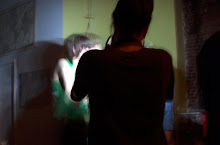Phrygians were the first to discover this art.[1] Its classes are: (1) Bird-augury; for example, when this particular bird flies, in front or behind, heading right or left, one would say what it means. Telegonus first wrote about this.[2] (2) Interpreting omens in the house, when there are things that happen in the house; for example, if a weasel or snake appeared in the house, or olive oil was spilt, or honey, or wine, or water, or ashes, or there was a grating of wood, or something else, it foretells such and such. Xenocrates first wrote collecting this.[3] (3) Interpreting omens on travels, as when someone explains things that happen on the way; for example, when someone carrying a particular thing meets you, that thing will happen to you. Polles wrote collecting this.[4] (4) Palmistry (hand-reading), as when, through the extension of hands and
palm stretched out, we say, from the lines, "You are making a baby" or something like this. Helenus wrote collecting this.[5] (5) The art of interpreting twitches is that recognized from the twitching of the body; for example, the right or left eye twitched,[6] or shoulder, or thigh, or an itching in the foot, or there was a ringing in the ear, it means this. Posidonius wrote collecting this.[7]
Διαίρεσις οἰωνιστικῆς. Οἰωνιστική: ταύτην εὗρον πρῶτοι Φρύγες. ταύτης δὲ τὸ μέν ἐστιν ὀρνεοσκοπικόν: οἷον ὅταν πετομένου τοῦδε τοῦ ὄρνιθος, ἔμπροσθεν ἢ ὄπισθεν δεξιὰ ἢ ἀριστερὰ νεύοντος, εἴποι τις, ὅτι τόδε σημαίνει. πρῶτος δὲ ἔγραψε περὶ τούτου Τηλέγονος. τὸ δὲ
οἰκοσκοπικόν, ὅταν τὰ ἐν τῷ οἴκῳ συμβαίνοντα: οἷον εἰ ἐν τῇ στέγῃ ἐφάνη γαλῆ ἢ ὄφις ἢ ἔλαιον ἐχέθη ἢ μέλι ἢ οἶνος ἢ ὕδωρ ἢ τέφρα: ἢ τρισμὸς ἐγένετο ξύλων ἢ ἄλλο τι, τόδε προμηνύει: ὃ συνέγραψε Ξενοκράτης. τὸ δὲ ἐνόδιον, ὡς ὅταν ἐξηγήσηταί τις τὰ ἐν τῇ ὁδῷ ἀπαντῶντα: ὅτι ἐὰν ἀπαντήσῃ σοί τις τόδε βαστάζων, τόδε συμβήσεταί σοι: ὃ συνέγραψε Πόλλης: τὸ δὲ χειροσκοπικόν, ὡς ὅταν διὰ τῆς ἐκτάσεως τῶν χειρῶν διατεινομένων καὶ
τῆς παλάμης, ἀπὸ τῶν ῥυτίδων εἴπωμεν, παιδοποιεῖ ἤ τι τοιοῦτον: ὃ συνέγραψεν Ἕλενος. παλμικὸν δὲ τὸ διὰ τῆς πάλσεως τοῦ σώματος γνωριζόμενον: οἷον, ἐπάλθη ὁ δεξιὸς ἢ ὁ ἀριστερὸς ὀφθαλμὸς ἢ ὦμος ἢ μηρός: ἢ κνησμὸς ἐν τῷ ποδί, ἢ πρὸς τὸ οὖς ἦχος ἐγένετο, τόδε συμβαίνει: ὃ συνέγραψε Ποσεδώνιος.
Monday, June 13, 2005
Subscribe to:
Post Comments (Atom)

No comments:
Post a Comment